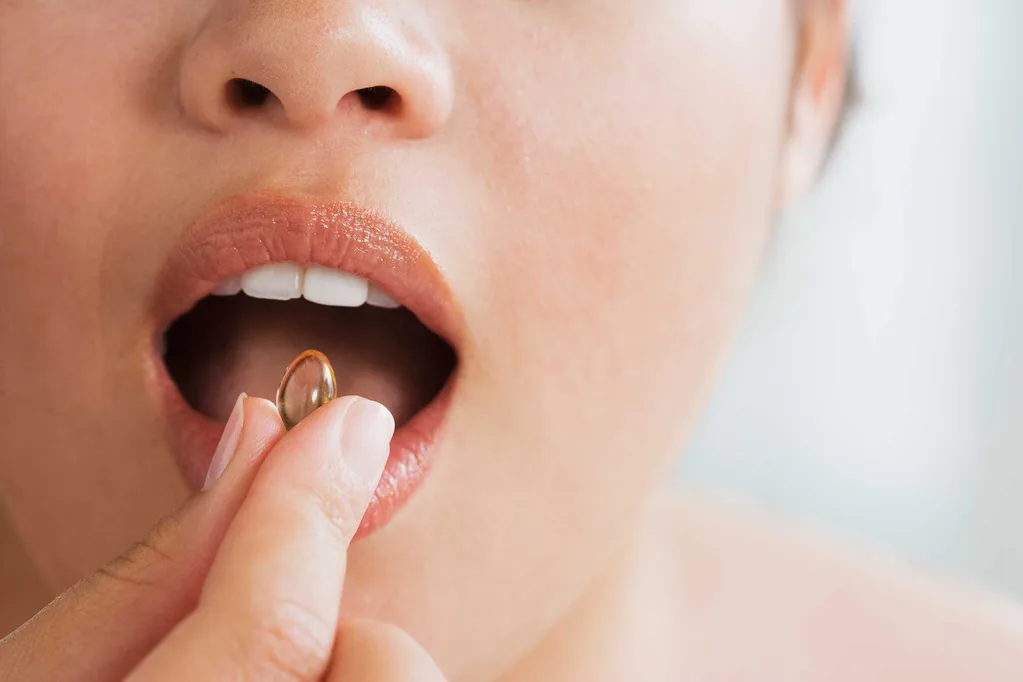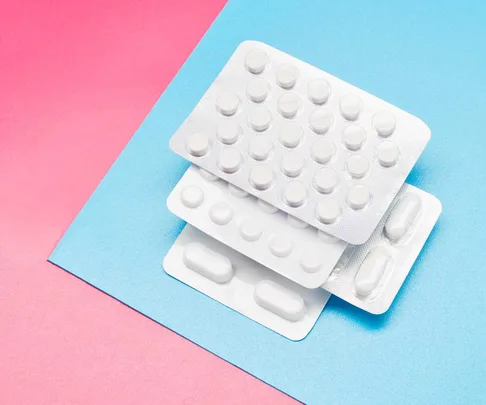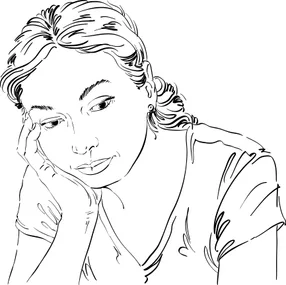Some days, when the words she wanted wouldn’t come, Helen Yarrow privately wondered if she was in the early stages of dementia. She’d just turned 50 and the medical receptionist found herself struggling to name familiar objects.
“If I was trying to think of a bench seat, say, I’d be calling it ‘that seat without a back to it.'”
She was too embarrassed to talk to anyone about it, even at work, but she was finally motivated to see her doctor when, at the end of last year, she began waking each day feeling as if she was nursing a terrible hangover even though she doesn’t drink.
“I was nauseous and dizzy all morning, and felt as if I hadn’t slept at all. I was irritable and grumpy. I just felt lousy. I tried to hide it, but I realised it wasn’t right.”
“It feels hormonal,” she told Dr Mona Ponnen, a women’s health specialist at a South Auckland medical clinic. She was right. Three weeks after starting hormone replacement therapy (HRT) – usually prescribed to treat the physical symptoms of https://www.nowtolove.co.nz/tags/menopause, such as hot flushes and night sweats – her brain fog lifted, along with her mood.
The updated research on HRT for women with menopause
Helen is one of an increasing number of women benefiting from a resurgence in the use of HRT (now called menopausal hormone therapy), after it was wrongly demonised by a poorly reported study from the US Women’s Health Initiative (WHI) in 2002, which linked it with an increased risk of breast cancer and heart attacks.
A lead investigator of the study later admitted the initial results were misleading and distorted for publicity and overstated the harms – generalising results from women over 60 to younger women. It’s now accepted that the treatment is safe and effective for healthy but symptomatic women within 10 years of menopause.
In the WHI study, participants were older – in their 60s and 70s – and 90 per cent had no menopausal symptoms.
But specialists say that message is taking longer to get through to women – and primary-care doctors who sometimes persuade women not to have hormone therapy. Dr Ponnen and other specialists say hormone therapy should be used more often by GPs to treat women who have not only the well-recognised symptoms of menopause, but also hormone-linked depression, confusion and anxiety.
“They are reluctant to use hormones because they think you are fiddling with nature,” says Dr Ponnen.
The attitudes to HRT are shifting
Auckland reproductive endocrinologist Dr Stella Milsom says that although reanalysis and further data have made it clear that menopausal hormone therapy is “not the devil’s juice”, many primary-care doctors are still too frightened to use it.
“If women are brave enough to see someone, they often don’t get a hearing about it; they are dismissed. One GP says ‘just put up with it’, the next one says ‘it’s dangerous’ and the next one says ‘the symptoms are only going to last a few months’. For symptomatic women, hormone therapy is far and away the most effective treatment, so it should be the first option considered, not the alternatives like painkillers, antidepressants or supplements. There are not many things I do that a woman will come back and say, ‘Thank goodness we did this.'”
Dr Milsom describes the writing and reporting of the WHI paper as “almost negligence”.
“To my mind, it’s the worst thing that’s happened in women’s health over the past couple of decades. The treatment is associated with a very slight risk of breast cancer – but only one extra case for every 1200 women treated each year – no greater than the risk from drinking alcohol or being overweight.
“It’s a very rare risk, but that is not the perception in primary care. The study should have gone to ground years ago, but erroneous messages are still hanging around 17 years later and therefore health professionals need to update themselves with current guidelines so that hormone therapy is not withheld unnecessarily.
“It’s important that women and health professionals understand that, for healthy women with symptoms who are under 60 and within 10 years of menopause, the risks are very small and the benefits are significant. It’s a really miserable business when I see a woman who has taken herself to three different GPs and has been told, ‘No, it’s not for you.’
Hormone therapy can and should be prescribed in primary care and the great majority of women who have symptoms affecting their quality of life are going to get significant benefits, and the risks and short-term side effects (bleeding and breast tenderness) are relatively uncommon and minor.”

The information is now out in the open
On the other hand, Dr Milsom says, hormone therapy is not for all women. It’s not essential, it’s not anti-ageing, it doesn’t need to go in the water supply. There are other options for symptoms if a woman doesn’t want hormones or has contraindications.
Early in March, researchers from the University of Helsinki published a study in the British Medical Journal that concluded women who used HRT long-term might have a small increased risk of Alzheimer’s disease. They compared the records of 85,000 women who developed Alzheimer’s with the same number of women who did not. Risk varied between a 9% and 17% increase depending on the type and extent of therapy used.
However, some experts pointed out the research could show only possible associations, not cause and effect, and contained no biomarkers or other important clinical or genetic details. They said all HRT guidelines are clear about not starting HRT late in life (for example, after the age of 60), but within 10 years of the transitional perimenopause phase, and that the therapy is safe and effective for most women.
Dr Milsom says the number of referrals she gets from psychiatrists of women seeking help for menopause-related depression and anxiety has significantly increased in recent years. It’s not uncommon for women to have their first serious episode of depression around menopause, or to have existing conditions exacerbated by the reduction in oestrogen levels. Confusion and ‘brain fog’ are also common. Mood symptoms predominate in about 30% of the cases she sees.
“Very high-powered women who are used to using their brain in their work every day often find it’s taking them a lot longer to do things; they’re not able to look at accounts or analyse data in the way they once could.”
Hormones are variable
Although all women have changes in hormones, not all will be symptomatic.
“Some will have an absolutely terrible time, others no symptoms at all, and others will be in the middle. It’s like pregnancy, where hormone changes are similar in all women, but the symptoms can be very variable, and we don’t quite understand why that should be.”
There is no maximum time for women to be on hormone treatment, and when to stop is a consensus between doctor and patient.
“Every two or three years I will suggest a patient weans off it and the usual response is, ‘No, thank you, I love being on it and don’t want to stop,’ and I say, ‘Fine’, and I’ll review it again in another year or two. Obviously, if the woman has developed contraindications, I will push the discussion and suggest a non-hormone alternative.”
Auckland psychiatrist Dr Rob Shieff says about 80 per cent of his patients have depression, and a significant majority are women.
“It could just be that women have to put up with men… But almost certainly it’s got something to do with circulating hormones; it’s just difficult to know to what degree. But, if you look at complaints of depression across the female life cycle, there’s a spike at puberty, there’s premenstrual dysphoric disorder (PMDD), which obviously has some hormonal contribution, there’s a spike after childbirth, which probably has something to do with hormonal variability, and there’s another significant spike with menopause. So, if you look at the times when hormone flux is likely to happen, they overlap with the periods of greater risk for depression and it’s certainly being noticed more and more.”
It’s important to talk about it
Hormonal contributors should be considered early when doctors treat menopausal women, he says. He refers patients to a GP or endocrinologist if they have a lot of perimenopausal symptoms or haven’t responded to the usual treatments.
“Some people don’t want to see their GP because they’ve had conversations about HRT that haven’t gone the way they wanted – they’ve been told to avoid it.”
He’s seen patients who have had marked improvement in their symptoms with HRT, although often it’s used alongside psychotherapy or antidepressants. “There’s an awful lot more to menopause than hormone change. It’s a major life step.”
It’s important for women to acknowledge and talk about the issue.
“I think some women still feel a degree of embarrassment, humiliation and shame about menopause, as being part of getting old and losing their biological function, so it’s really important for them to feel confident enough to talk about their treatment options, to be clear about their concerns and not having them brushed to one side. If they don’t feel they’ve had appropriate advice, they should see a different health professional.”

Hormone spikes
Professor of psychiatry Jayashri Kulkarni, who founded the Monash Alfred Psychiatry Research Centre in Melbourne, is at the forefront of international research into the effectiveness of hormones in mental health treatment.
Hormones such as oestrogen, progesterone and testosterone are not just important for reproduction, but are vital brain chemistry drivers, she says.
“In our clinic, we have many dreadful stories of middle-aged women who have been perfectly healthy, perfectly fine and handling everything well and have had no particular crisis, suddenly developing severe depression and anxiety that doesn’t respond to standard anti-depressant therapy.”
She has trialled different hormone strategies at the clinic, and last April she published a paper showing that mid-life women with depression, treated with the menopausal hormone therapy Tibolone for 12 weeks, showed significant improvement.
“The use of hormone therapies provides exciting innovations for the treatment of depression during the menopause transition,” she concluded.
In a large-scale trial, published in 2014, Kulkarni’s team showed the oestrogen therapy Estradiol was clinically useful as an adjunct therapy for women with treatment-resistant schizophrenia.
“It’s been really heartening to know that we can actually help women with depression and other [mental health] conditions by doing hormone treatments rather than going straight to antidepressants. The gonadal hormones – oestrogen, progesterone and testosterone – are critical to good mental health in women because they are potent brain chemicals.”
In women with clear perimenopausal-related depression, it makes sense for doctors to go straight to hormone therapy.
“If she says, ‘I was perfectly all right, then I got to 45 and everything fell apart,’ with no other precipitating factors, you’d have to think that this has a hormonal cause. But it doesn’t happen that way because mental-health experts don’t think of hormones. This is the problem with medicine – it depends on the speciality of the person you go to see. A psychiatrist will use antidepressants and other treatments before they think of hormones because that’s an endocrine speciality.”
She urges doctors to “listen to their female patients, because they are often very intuitive about things such as premenstrual depression or the onset of perimenopause – they are very good at picking up even a slight change in function”.


